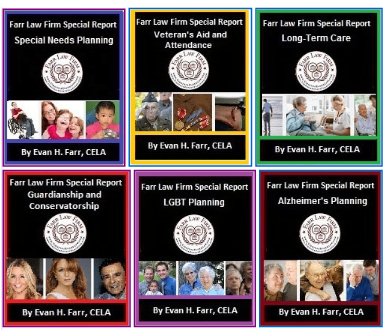How Do You Tell Loved Ones That You Have Alzheimer's?
Published: Wed, 11/04/15
 |
How Do You Tell Loved Ones That You Have Alzheimer's?If you cannot view the image below, please read the article on our blog. Fifty-nine year old Greg O'Brien lives a healthy and happy life. He exercises every day, makes a good living, and spends lots of quality time with his wife and three children. Five years ago, Greg started to notice changes in himself. He was forgetting things, and his judgment sometimes seemed impaired. Meanwhile, his own mother was dying of Alzheimer's disease.
Greg visited his neurologist's office, and underwent testing, including clinical tests and a brain scan. He remembers sitting next to his wife and being told by the doctor that he has Alzheimer's disease. The first thing that went through his mind was his wife and kids. Then, he felt water running down the side of his face. Those were his tears.
How He Told His Children
When Greg felt ready to tell his three children, he planned a family meeting. He pumped himself up in the bathroom, practicing what he was going to say. When he came out, he went over the fact that his children's great-grandfather and their grandfather had died of Alzheimer's, and their grandmother now has it too. And then he said, "and now it's come for me." His children were stunned, and
there was silence. Then, his son, Conor, added levity to the situation when he said, "so Dad, you're losing your mind." Everyone laughed; and Greg laughed, and said, "You know what, that's enough talk for today. Let's go to dinner."
A week later, Greg gave one of his sons, Brendan, Power of Attorney, which meant Brendan needed to understand the details of his father's diagnosis. "We need to talk about this," Greg said. But this time, his son resisted. Click to hear Greg recount their difficult
conversation.
How to Talk to Your Family
Alzheimer’s is the second-most feared disease in the world. It’s true that there is no cure for Alzheimer’s or other dementias and that many of the treatments only delay further exacerbation of the condition. Yet when we put off talking about the uncomfortable, we do ourselves and our
family a disservice.
According to the Alzheimer's Association, sharing your diagnosis with others is an important step toward integrating Alzheimer's disease into your life. And, the upcoming holidays offer a good opportunity to talk with your family about changes you’ve noticed in your memory, behavior, or cognition, or an Alzheimer's diagnosis that you received.
Why Tell Others About Your Diagnosis
It is normal to experience fear or discomfort about sharing your diagnosis. However, as the disease progresses, you will need the support of those who know and understand you. Talking openly with those you trust is a powerful way to educate those around you about the disease and to engage their support.
Deciding Who to Tell
Some people choose to share their diagnosis with just their closest family and friends, while others may be comfortable sharing their diagnosis with a broader group of people. Assess your personal comfort level before making this decision. The Alzheimer's Association offers the following questions to help you consider the relationships in your life and determine who should be included in your disclosure:
• Who are the people I feel closest to?
• Who will continue to support me with this diagnosis?
• Who I am responsible for telling (spouse, partner, friends)?
How to Share Your Diagnosis
After deciding to share your diagnosis, consider when to share your news. You may want to tell others right away, or you may want to wait until you have had time to come to terms with your diagnosis.
To increase the likelihood of a comforting reaction when you tell your friends or family about the diagnosis, find a time when you can be alone and relaxed together. As Greg did in our example, give some thought to the conversation — what do you want to say? Consider writing your thoughts on paper and bringing that with you.
Consider the following questions as you plan what to say to others:
• How do I think this person will react? If the reaction is something unexpected, how might I feel? What can I do in response?
• How do I want this person to treat me? The diagnosis represents a big change, but it's only gradually that my needs will change. What do I want from this person right now?
• What does the person need from me now? What can I provide that will help?
The #TalkBrainHealth Campaign
Need help getting the conversation started? This month, the National Alliance for Caregiving will be hosting a month-long social media conversation, called #TalkBrainHealth campaign, to help you talk about Alzheimer's with your family. Below are some resources associated with the #TalkBrainHealth campaign, and cognitive screening:
"I'll Be Me" is Being Re-aired
In addition, in observance of National Alzheimer’s Disease Awareness Month and National Family Caregivers Month, which both occur this month, CNN Films will re-air “Glen Campbell: I’ll Be Me” on Saturday, November 7, at 8 pm EDT/7 pm CDT. If you haven’t had a chance to see this poignant peek into the life of someone with
Alzheimer’s disease, as well the lives of the caregivers who surround them, I encourage you to take the time to watch it. The film represents an important step forward in raising public awareness about the reality of Alzheimer’s disease.
Medicaid Planning for Alzheimer’s and Other Types of Dementia
Alzheimer’s is the biggest health and social care challenge of our generation, and a diagnosis of the disease is life-changing. When it comes to planning for long-term care needs, generally, the earlier someone with dementia plans, the better. But it is never too late to begin the process of Long-term Care Planning, also called Lifecare Planning and Medicaid Asset Protection Planning.
Medicaid planning can be initiated by an adult child acting as agent under a properly-drafted Power of Attorney, even if your loved one is already in a nursing home or receiving other long-term care.
Medicaid Asset Protection Do you have a loved one who is suffering from Alzheimer’s or any other type of dementia? Persons with dementia and their families face special legal and financial needs. At The Law Firm of Evan H. Farr, P.C., we are dedicated to easing the financial and emotional burden on those suffering from dementia and their loved ones. We help protect the family’s hard-earned assets while maintaining your loved one’s comfort, dignity, and
quality of life by ensuring eligibility for critical government benefits such as Medicaid and Veterans Aid and Attendance. Please call us as soon as possible to make an appointment for a no-cost consultation:
Fairfax Alzheimer’s Planning: 703-691-1888
Fredericksburg Alzheimer’s Planning: 540-479-1435 Rockville Alzheimer’s Planning: 301-519-8041 DC Alzheimer’s Planning: 202-587-2797 |
|
||
|
This email was sent to
.
|










